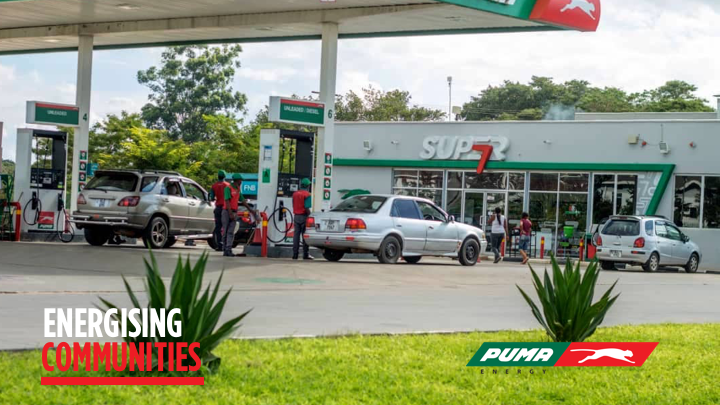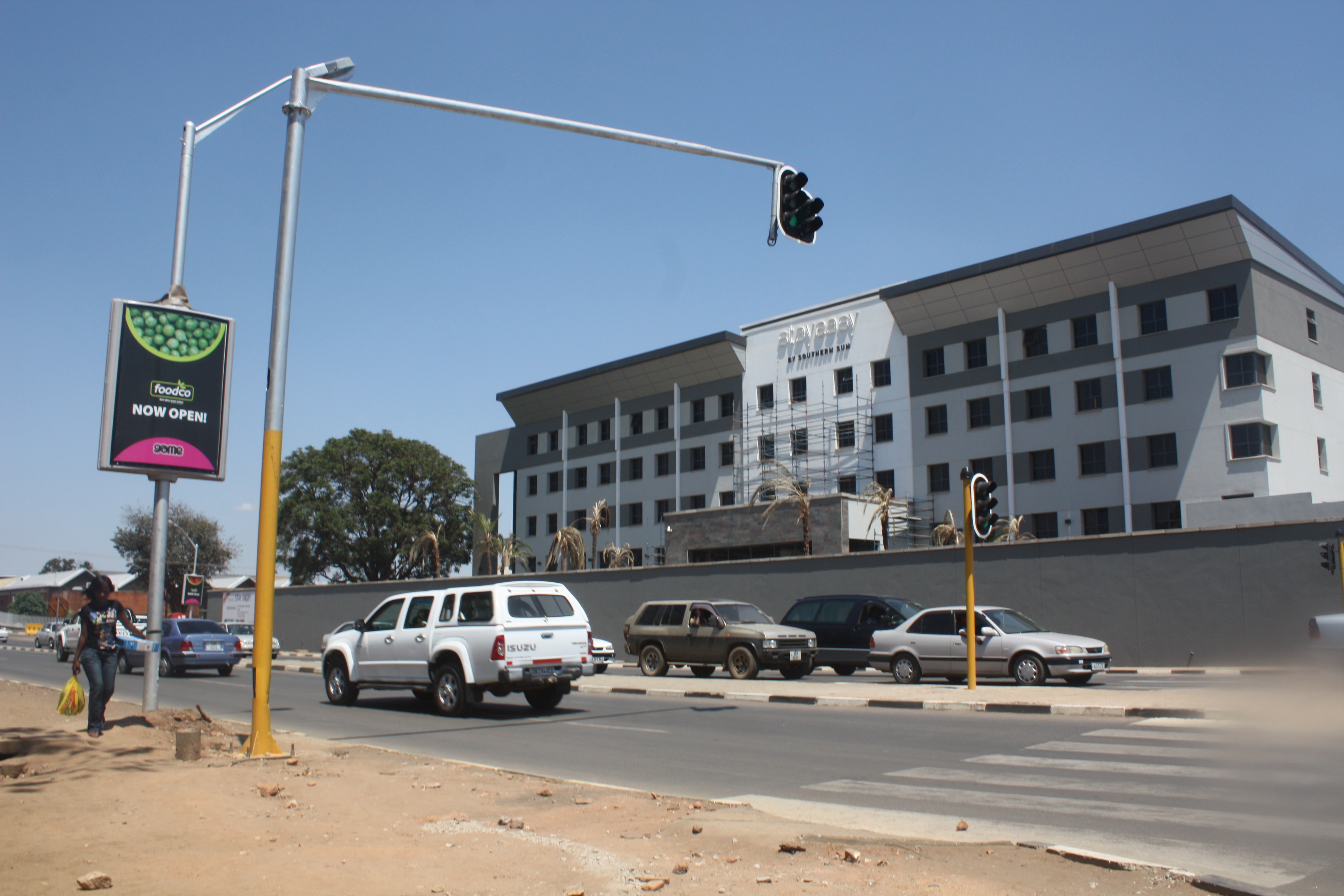Daniel Mwamba outlines private sector road safety outcomes in Zambia
Notice: Undefined index: catFilterList in /home/zambi/public_html/wp-content/plugins/wp-likes/api.php on line 243

Puma Energy has over 3,082 retail sites in more than 48 countries to serve everyone
By Daniel Mwamba-Zambia Road Safety Trust (ZRST) Chairperson
This article offers a perspective on opportunities for the private sector to improve road safety outcomes in Zambia. Road safety has been recognised as an increasing public health burden that disproportionately affects low- and middle-income countries, including Zambia.

Take in the little special moments that make the Journey memorable with Puma Energy
Ninety-one percent of the global road fatalities occur in low- and middle-income countries although these countries have approximately half of the world’s vehicles.
According to the World Health Organization (WHO), 50 million people are injured and 1.25 million are killed in traffic-related crashes. Back home, the Zambia Police reported that 2206 people were killed in 2016, leaving another 15,000 injured, some with life threatening injuries.
And the Zambian government has said that road traffic is the third leading cause of death behind malaria and HIV/AIDS.

From Grocery stores, ATMs and food courts, Puma Energy service stations serve better
More than half (sixty percent) of those dying on Zambia’s roads are “vulnerable road users”: pedestrians, cyclists, and motorcyclists. Beyond their immediate health implications, road traffic accidents have considerable social and economic consequences.

Daniel Mwamba
Road traffic injuries cost our country at least K5 billion per year and place an enormous burden on public resources, such as health systems. The economic impact of road traffic accidents are also felt at the family level.

Puma Energy service station
Economically disadvantaged families are affected by both direct medical costs and indirect costs (i.e., lost wages) (WHO, 2013). Many poor people generally lack ongoing support in the event of long-term injury and have limited access to post-crash emergency care, which further compounds this impact.
These road safety problems are scientific and technical in content and cut across the concerns of many government agencies (the Police, RTSA, Health, Education, etc), scientific disciplines, and other sectors of society (religion, private and NGO sectors). Addressing the road safety burden is in the mutual interest of all these actors.

Let Puma Energy know how to serve you better
Along with government, the private sector has interest in resolving the road safety problem.
The private sector can help to reduce this burden by exploring the shared knowledge, experience, and expertise of companies, especially some who maintain global fleets.
Vehicles used by the private sector currently represent the dominant transportation investments, and most immediate opportunities for actionable change.
Hence, a significant portion of the financial impact of road traffic accidents falls on companies because such accidents impact the efficiency of transport-related commercial activity and present a risk to employee health and safety.
Beyond the fundamental responsibility to keep employees safe, companies also have a clear financial incentive to improve road safety. By doing so, companies can reduce damage to their assets and minimise productivity losses due to employee injury as well as reduce standstill logistics costs.

Make a habit of checking the oil levels in your vehicle for a longer lasting engine at Puma Energy
Road safety impacts the private sector through three key domains: a company’s fleet operations (i.e., employees who work and drive trucks on the roads), vendors and contractors who service the company (i.e., transport goods for delivery or distribution on behalf of companies and the sales representatives who service these accounts), and employees who commute to work or travel for work. In each of these domains, companies can be making great strides in reducing the road safety burden.
By some estimates, more than a quarter of all road traffic incidents involve individuals who are driving as part of their work at the time of the accident. As such, irrespective of the size of the company, every organisation should take responsibility by establishing road safety programmes to protect their employees.

Stay Easy Hotel at Levy Junction Mall Church Road in Lusaka Zambia 12 Nov 2011 pix by Derrick Sinjela
These programmes can range from formalised training to establishing simple policies, such as providing employees safe driving education, encouraging wearing seatbelts and helmets, and ensuring vehicles are safe on the road.
Even the simplest of these policies can help reduce injuries and deaths and result in measurable benefits, such as saving lives, improving productivity, and reducing vehicle repair bills, workers’ compensation, insurance, and lost time at work.

Thank God its Thursday with Puma Energy
By establishing road safety policies and procedures, companies will improve not only the safety of their own employees who drive for work purposes but also the safety of others sharing streets and road systems.
While the private sector will continue to ensure the safety of its drivers, contractors, and commuting employees, they also have the opportunity to improve road safety outcomes for the broader public.
The improvements in road safety driven by the private sector can extend well beyond company fleet operations.

Puma Energy energising communities
By applying knowledge and best practices on road safety, utilising brand power, and harnessing the power of corporate resources and presence in our communities, the private sector can help to address this health and development challenge inside and outside of their companies’ walls.
A current example of this wide-scale contribution to road safety outside company operations is Puma Energy Zambia Plc. Since 2015 Puma Energy Zambia plc and its international Charitable Foundation, Puma Energy Foundation (FEF), have supported government efforts to reduce road traffic accidents in Zambia by contributing over half a million kwacha.
The company has been supporting child road safety education benefiting over 70,000 primary school going children in the capital and Copperbelt where a quarter of traffic fatalities involve children under the age of sixteen.

Puma Energy community outreach in Lusaka on 4 December 2019
Puma Energy has also supported the building of safer road infrastructure at Vera Chiluba Primary School in Lusaka; participated and supported the 2017 Road Safety week to raise awareness on road safety targeting motorists and pedestrians, and has supported a three-month community radio with road safety education programmes highlighting the safety of vulnerable road users.

Experience the Puma Energy power and energy that comes from using genuine products
The value of this contribution by Puma Energy Zambia to road safety in Zambia helped a reduction of road deaths by almost 20 percent in 2017. This was the first time in four years that Zambia experienced such reduced road traffic fatalities.
The most successful road safety programmes that exist today, such as Sweden’s Vision Zero initiative, recognize this complexity and mutual interest and approach the problem in a multifaceted way. The private sector is one of many actors that can help to improve the problem.























